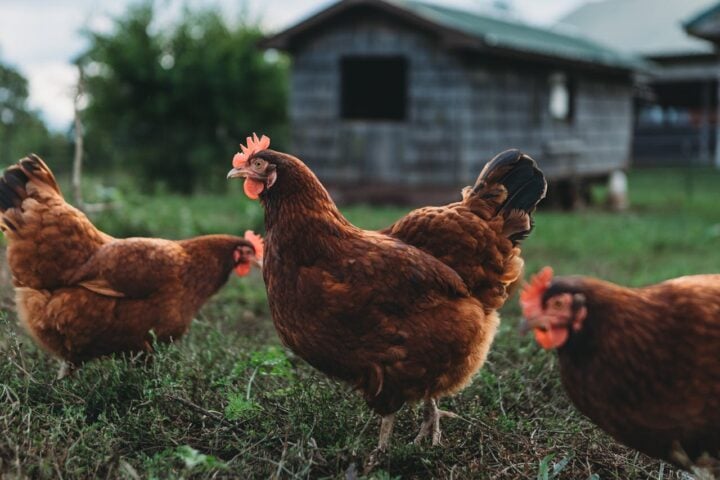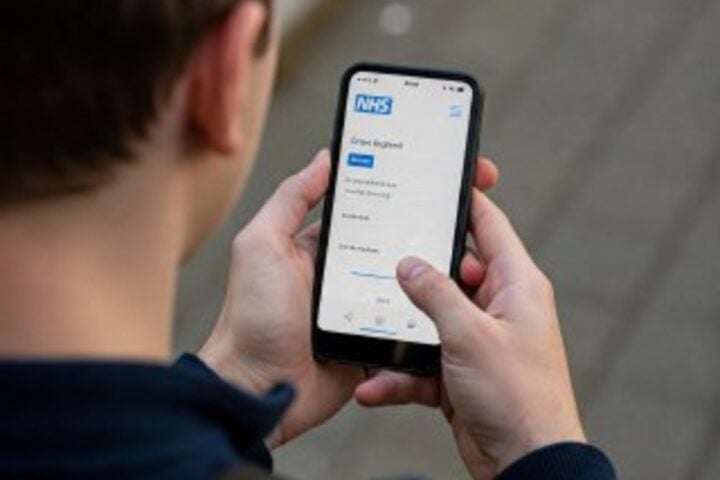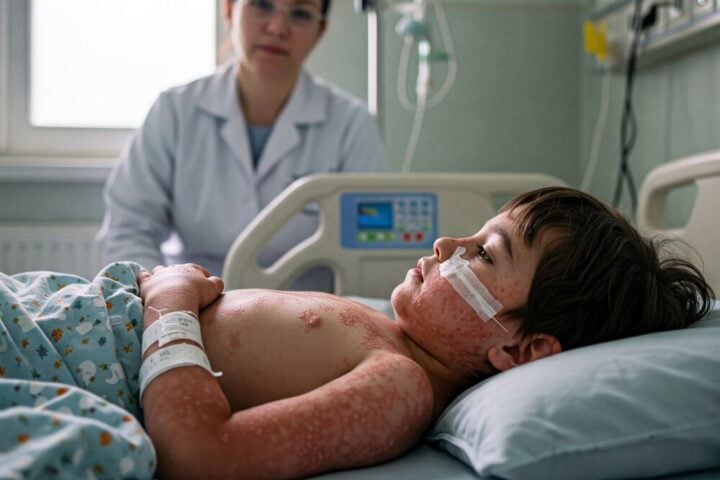NHS England reports over one million people searched for norovirus advice online this winter, making it the most visited health condition on the NHS website. This surge in web traffic coincided with record-high norovirus cases in hospitals as healthcare staff battled what officials describe as a “quad-demic” of winter viruses.
The data reveals 1,021,436 visits to the norovirus advice pages between December 2 and March 23, a significant increase from 729,822 visits during the same period last winter.
“The NHS has had an incredibly busy winter with norovirus cases in hospital reaching a record high, but many people have treated the virus at home,” said Duncan Burton, Chief Nursing Officer for England.
The highly contagious stomach bug wasn’t the only virus causing concern. Flu-related web searches increased by 50%, jumping from 471,158 last winter to 703,794 since early December. Meanwhile, respiratory syncytial virus (RSV) emerged as a major health issue, with its dedicated webpage receiving 614,214 visits during the winter months.
Similar Posts
This winter marked the first time the NHS provided RSV vaccinations. The virus particularly affects the airways and lungs, potentially causing severe infections like pneumonia in older adults.
Other health concerns generating significant online traffic included chest infections (800,772 visits), childhood fevers (676,436), sinusitis (595,624), pneumonia (589,614), and shingles (582,572). By contrast, COVID-19 symptoms page visits fell by 58%, with 646,064 views compared to over 1.5 million the previous winter.

The NHS recommends specific measures to prevent norovirus spread: frequent handwashing with soap and water, avoiding contact with others until two days after symptoms resolve, and using bleach-based products to clean contaminated surfaces.
For those infected, the NHS advises home treatment, rest, and drinking plenty of fluids like water or squash. Most people begin to feel better within 2-3 days.
Frequently Asked Questions
Norovirus is a highly contagious stomach bug that causes vomiting and diarrhea. The current outbreak has reached record levels in UK hospitals this winter, with over one million people searching for advice on the NHS website. Health officials are describing it as part of a “quad-demic” of winter viruses putting significant strain on healthcare services.
A “quad-demic” refers to the simultaneous circulation of four major viruses: norovirus, influenza (flu), COVID-19, and respiratory syncytial virus (RSV). This winter, all four viruses have been circulating at significant levels, creating unprecedented pressure on healthcare systems in the UK.
Norovirus typically causes sudden onset of nausea, vomiting, diarrhea, and sometimes fever and body aches. According to NHS advice, most people can treat it at home and will start feeling better in 2-3 days. Treatment involves getting plenty of rest, drinking lots of fluids like water or squash to prevent dehydration, and avoiding contact with others until 48 hours after symptoms have stopped.
The NHS recommends frequent handwashing with soap and water (hand sanitizers are less effective against norovirus), avoiding contact with infected people, and staying home for at least 48 hours after symptoms stop. For cleaning contaminated surfaces, use bleach-based products as norovirus can survive for days on surfaces. Be especially careful when preparing food or caring for others.
While norovirus can affect anyone, it poses greater risks to the elderly, young children, and people with weakened immune systems. These vulnerable groups are more likely to experience severe dehydration, which may require medical attention. In healthcare settings, outbreaks can be particularly dangerous for already ill patients.
The article mentions that the NHS started vaccinating people against RSV (respiratory syncytial virus) for the first time in its history this winter. While specific eligibility details aren’t provided in the source material, RSV vaccinations typically target vulnerable groups like infants, older adults, and those with certain underlying health conditions, as these groups face the highest risk of complications.


















